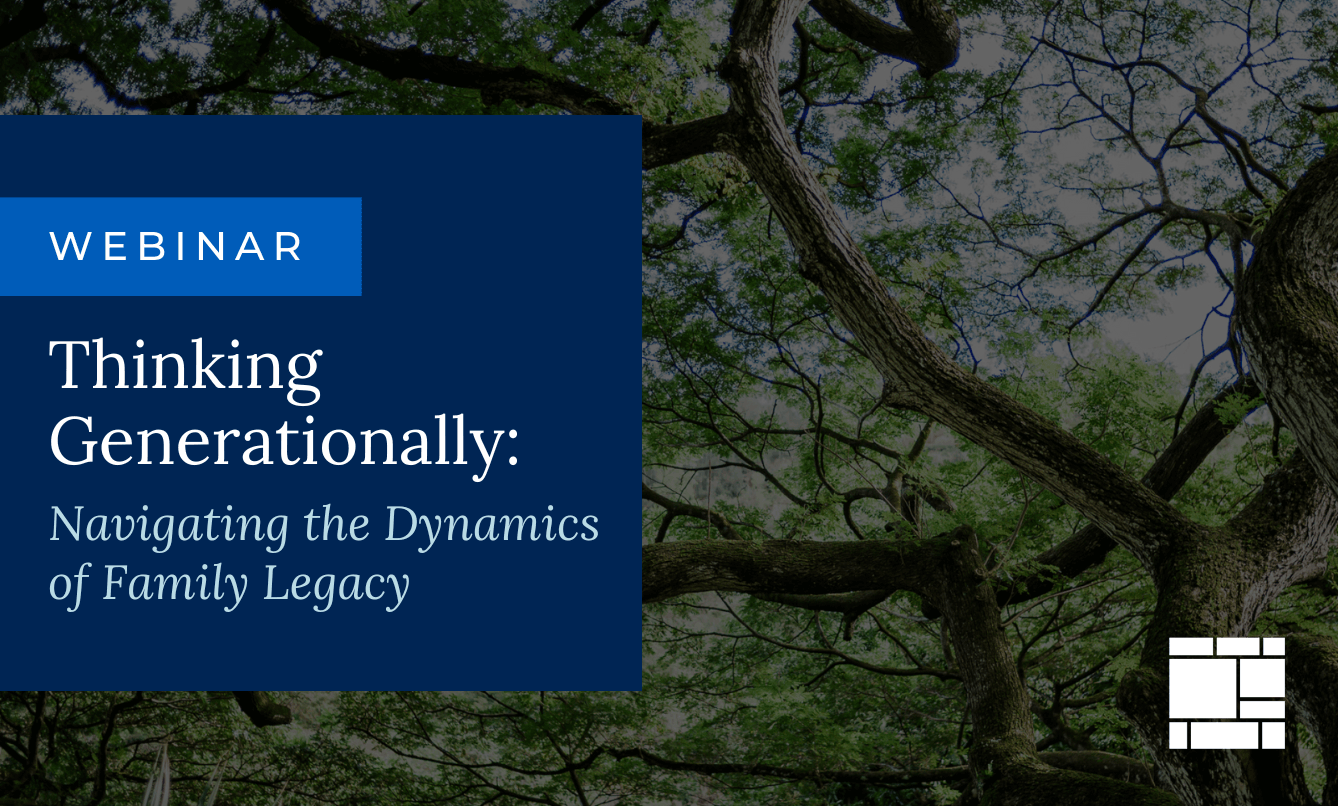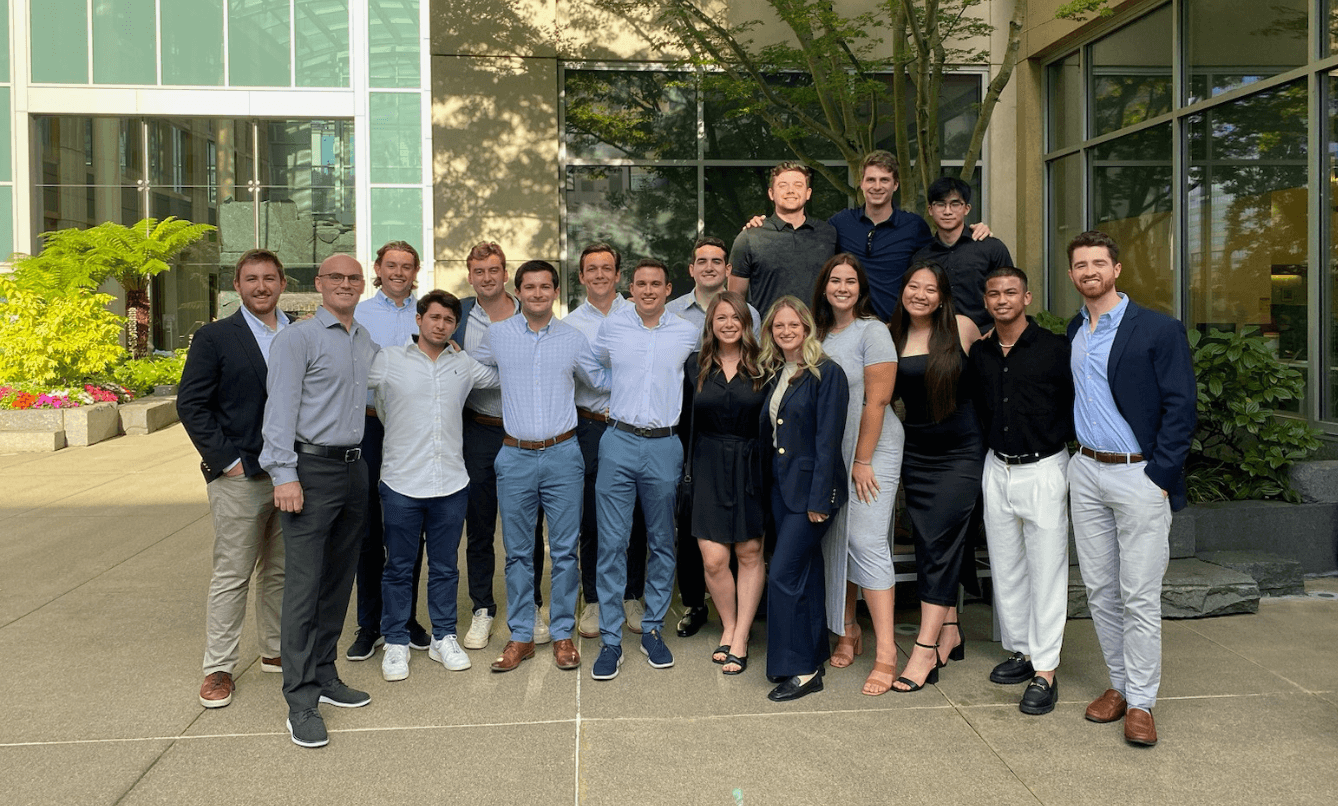Next-generation investors are said to be more than twice as likely to be interested in ESG and Impact within the investing world than older generations. Larry Fink, CEO of BlackRock, in his 2020 letter to CEOs, describes how the next generation of investors will reshape the future of investing: “We will witness massive capital shifts. And this dynamic will accelerate as the next generation takes the helm of government and business. Young people have been at the forefront of calling on institutions – including BlackRock – to address the new challenges associated with climate change. They are asking more of companies and governments, in both transparencies and action. And as trillions of dollars shift to millennials over the next few decades, as they become CEOs and CIOs, as they become the policymakers and heads of state, they will further reshape the world’s approach to sustainability.”
Fink’s letter provides insight into dynamics that are accelerating the adoption of ESG and impact investing. The NextGen is moving into leadership positions and is inheriting wealth from older generations. Investment and finance committees of family foundations have an opportunity to discuss ESG and Impact within their investment discussions, and to draw in NextGen family members with a zeal for these topics. By participating in these discussions, NextGen investors are better able to move up the knowledge curve across the traditional investing landscape, while sharing their knowledge and perspective on ESG and impact. In other words, discussions of ESG and Impact offer an ideal opportunity to bridge the generational gap between the next generation of investors and the older generation as millennials and Gen Z generations strive to build wealth that aligns with their values.
The benefits of bridging the generational gap should not be underestimated. By focusing on ESG and Impact, families and foundations can attract interest from the NextGen, better facilitate the transfer of investment knowledge, and better succeed at empowering the NextGen and preparing them to take the reins in the future. NextGen families are more likely to be more diverse, and diverse governance structures will be more inviting, engaging, and will be a more accurate reflection of our society as a whole.
Transfer of Investment Knowledge
NextGen investors have developed a consciousness of ESG and are more likely to believe that they can make a meaningful difference with their investments. For instance, NextGen investors are more likely to care more about climate change, human rights, and corporate governance issues than older generations. A Deloitte Global Millennial Survey 2020 cites that; “despite the individual challenges and personal sources of anxiety that millennials and Gen Zs are facing, they have remained focused on larger societal issues, both before and after the onset of the pandemic. If anything, the pandemic has reinforced their desire to help drive positive change in their communities and worldwide. And they continue to push for a world in which businesses and governments mirror that same commitment to society, putting people ahead of profits and prioritizing environmental sustainability.”
The next generation’s awareness of ESG can help bridge the investment gap with the older generation and spark a meaningful conversation that could lead to positive outcomes. Such discussions may lead to greater comfort with the governing processes, and increased confidence that the transfer of wealth from the older to the next generation will proceed in an equitable manner. Given the tremendous growth in ESG assets within Family Offices and Foundations, the topic is important to understand and has become too big to ignore.
In addition to the benefit of engaging NextGen family members in a dialogue on investments, the interaction with NextGen investors can provide the additional benefit of engaging head of household family members in a dialogue on technology. NextGen investors are the first digital natives with in-depth knowledge of technology, along with their affinity for ESG and openness to understanding trends that may impact future investment outcomes.
Diverse Family and Governance Structure
NextGen investors come from diverse families with different family governance structures and dynamics. Family dynamics have evolved. For instance, the head of a household – a patriarch or matriarch, might direct a foundation or endowment with specific investment values that differ from next-generation family members that are inclined to align their investments with their values. The difference in values between the head of household and the next generation may often create friction or misunderstanding that might complicate wealth transfer to the next generation. Such wealth transfers to millennial heirs are estimated to total as much as $30 trillion.
As with estate planning, for-profit and non-profit businesses need to plan. Thoughtful organizations engage and train their future leaders as part of their succession planning. As the NextGen shares their wealth of knowledge regarding ESG, the discussions hold the promise of enabling families to identify shared values. Such shared values can then inform investment, wealth management, and philanthropic decisions. As Ron Cordes of the Cordes Foundation and a Pathstone board member recently noted, “There are real investing opportunities with impact. It’s not about disguised philanthropy.” An impact investing strategy aligned with family values can help engage a younger generation, a generation that will one day be leading and managing the family office or family foundation.
NextGen investors have a different mindset than older generations. Younger generations are more inclined to embrace ESG and Impact investing and seek to align their investment portfolio with their values. ESG and Impact investing is gaining traction within family offices and family foundations. Discussion of these investment opportunities will be beneficial for both older and younger generations and will better facilitate the transfer of knowledge and power from one generation to the next.
Please see the PDF version of this article for important disclosures.







